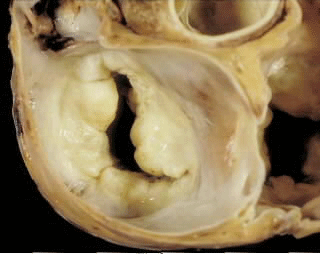Is There A Way To Naturally Reduce Mitral Valve Regurgitation?
Written By: Adam Pick, Patient Advocate, Author & Website Founder
Page Last Updated: July 10, 2025
One of the most popular forms of heart valve disease is mitral valve regurgitation. In fact, reports suggest that the mitral valve is the most commonly operated on heart valve.
As a result, I receive a lot of questions about mitral valve replacement and mitral valve repair. Earlier today, I received a question from Kim that reads, “Is there any way to naturally reduce mitral valve regurgitation?”
If you’ve been to this blog before, you know that I am an optimist. I believe that anything is possible. So it would be unlike me to answer that question with a definitive “no”. Interestingly enough, I have heard of some miracle stories from patients in which valve disease issues have mysteriously vanished over time.

However, at the same time, I have not found any clinically documented paths to reduce mitral valve regurgitation without some form of invasive procedure. It is true that some children will see heart murmurs (a symptom of regurgitation) “go-away” as their heart and body develops. But, for adults, I don’t believe this is typically the case — as valve damage is either congenital, an effect of wear or a heart valve infection.
I hope this helps shed some insight on whether or not there are ways to reduce regurgitation in the mitral valve. If you have any thoughts on this for Kim, please leave a comment below.
Related Links:
Keep on tickin!
Adam
|
Dave Richards says on August 3rd, 2008 at 11:18 am |
|
Six years ago, after being diagnosed with MVP (with moderate regurgitation), my cardiologist changed my beta blocker from Atenolol to Bisoprolol and added Altace, an ace inhibitor. He explained that the Biso and Altace would work together to slow my heart rate down and make it contract or pump with less force. The idea was to calm the muscle down slightly and postpone further damage to the muscle by reducing the pressure inside my heart. Echoes continued to show “moderate” leakiness, but my heart stopped enlarging after the change in meds. I agree with Adam — there probably is no way to reduce the regurgitation without surgical intervention, but the proper use of specific chemicals could help to control some of the symptoms of MVP for a finite period of time. |
 |
|
Winona Blake says on August 3rd, 2008 at 2:13 pm |
|
I can appreciate Kim’s question, and I had a similar hope when I was told that I need open heart surgery to repair my congenital mitral valve prolapse that at age 71 has developed severe regurgitation. So I started researching online (that is how I stumbled across Adam’s terrific website and book). I agree that when the regurgitation becomes significant to severe, surgery to repair appears the bs=est route to attain the goal of normal life expectancy and best quality of that long life. |
 |











